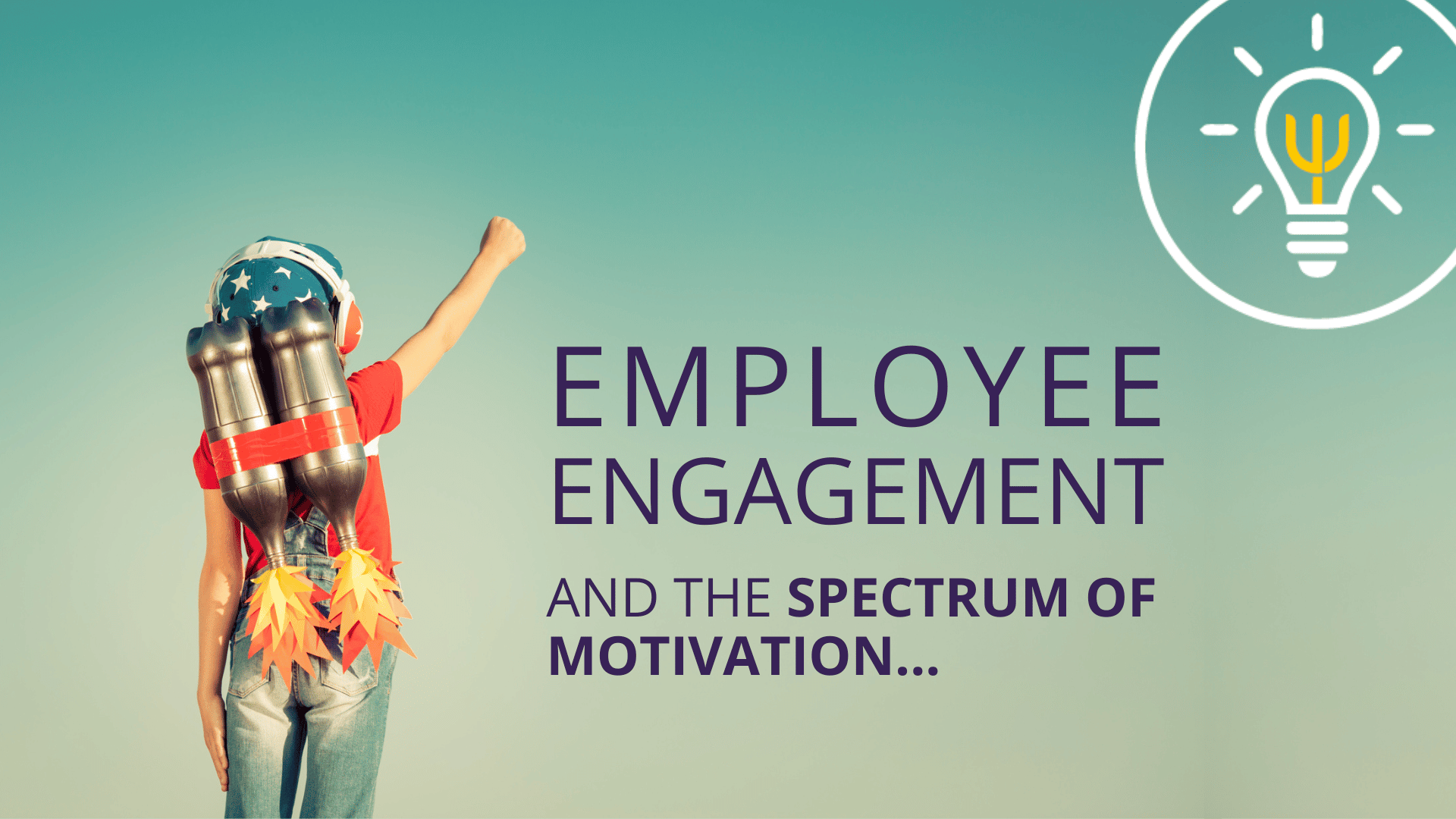The Manager’s Playbook: Employee engagement and the Spectrum of Motivation...
"Motivation is the art of getting people to do what you want them to do because they want to do it"
Dwight D. Eisenhower
Motivation has been a major management issue for decades and has been the subject of many research studies, by eminent people such as Abraham Maslow, Fredrick Herzberg, Douglas McGregor, Clayton Aldfer and John Hunt. Much of what they found remains applicable today. However, in recent years there have been significant changes to working practices, including:
More attention to work-life balance
Hybrid/flexible working practices
A global decline in levels of employee engagement
Ongoing economic uncertainty and the decline of the 'job for life'
The Spectrum of Motivation.
The key to engagement is day-to-day motivation, and whilst we are always motivated, it is often the quality of motivation that ultimately determines whether someone experiences disengagement, engagement or a true passion for the work.
For example, the effort we put into for a task that we feel we have to vs. want to can be materially different. So, whilst a traditional 'carrot and stick' approach might work in the short time, both the quality and longevity of its effectiveness is going to be limited at best.
Building on previous research, Susan Fowler, in her book Why motivating people doesn’t work… and what does, has identified six motivational outlooks – ranging from sub-optimal to optimal:
The six motivational outlooks.
Sub-optimal.
Disinterested - We simply do not find value in the project or task, may feel overwhelmed by it or that the task is a waste of our time
External - The project or task may provide us with an opportunity to exert our position or power, or to take advantage of a promise for more money or an enhanced status in the eyes of others
Imposed - Participating in the project or task because we feel pressured to do so due to the assumption that everyone else is participating and expects the same of them. We may also take part to avoid feelings of guilt or shame, or a fear of not participating
The sub-optimal Motivational Outlooks—Disinterested, External, and Imposed—are considered the junk food of motivation because they don’t feed an individual’s ongoing need for ARC (autonomy, relatedness, competence). Junk food motivation is enticing and appealing, but often does more harm than good.
When people act from a sub-optimal motivation, they can rarely sustain their effort over time. Research indicates that even if they achieve a goal, they pay a price in terms of physical or mental health and are less likely to engage in the goal or activity in the future.
Optimal.
Aligned - Participating in the project or task because we are able to link it to a significant value such as learning from others or having others learn from us.
Integrated Participating in a project or task because we are able to link our participation to a life or work purpose, such as giving voice to an important issue.
Inherent - Taking part because we simply enjoy the activity and regard it as fun.
The optimal Motivational Outlooks—Aligned, Integrated, and Inherent— are considered the health food of motivation because they nourish an individual’s needs for ARC on an ongoing basis; in addition, the energy and quality of effort derived from an optimal Motivational Outlook is sustainable.
"People are always motivated. The question is not if but why they are motivated"
Susan Fowler
In summary, as a leader or manager, your job is not to ‘motivate’ someone. They are already motivated; they are always motivated!
Instead, your role is to help individuals uncover why they are motivated, explore their current motivational outlook and then use this information to facilitate their performance. Linking these deep psychological needs to the wider goals of the organisation and their personal role in achieving these.
Find out more…
If you would like to know more about motivation and the services Psychology Works offer in the area of leadership development, please don’t hesitate to contact us.
In the meantime, if you’ve enjoyed our musings, why not check out some of our other blogs and thought pieces. For real time updates and insights you can also find us on LinkedIn, our social media platform of choice: @PsychologyWorks and @mariagardner.


